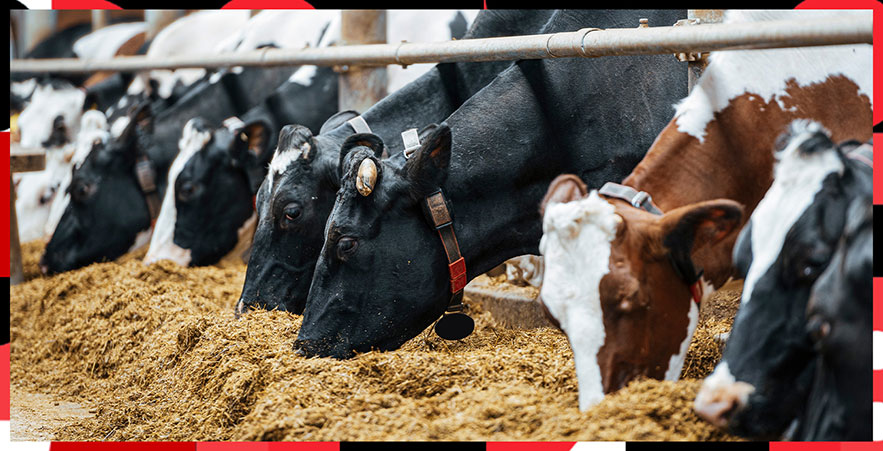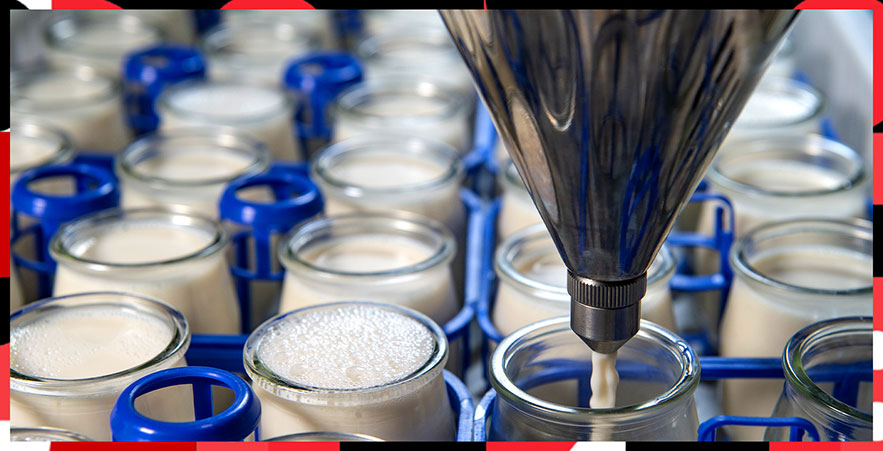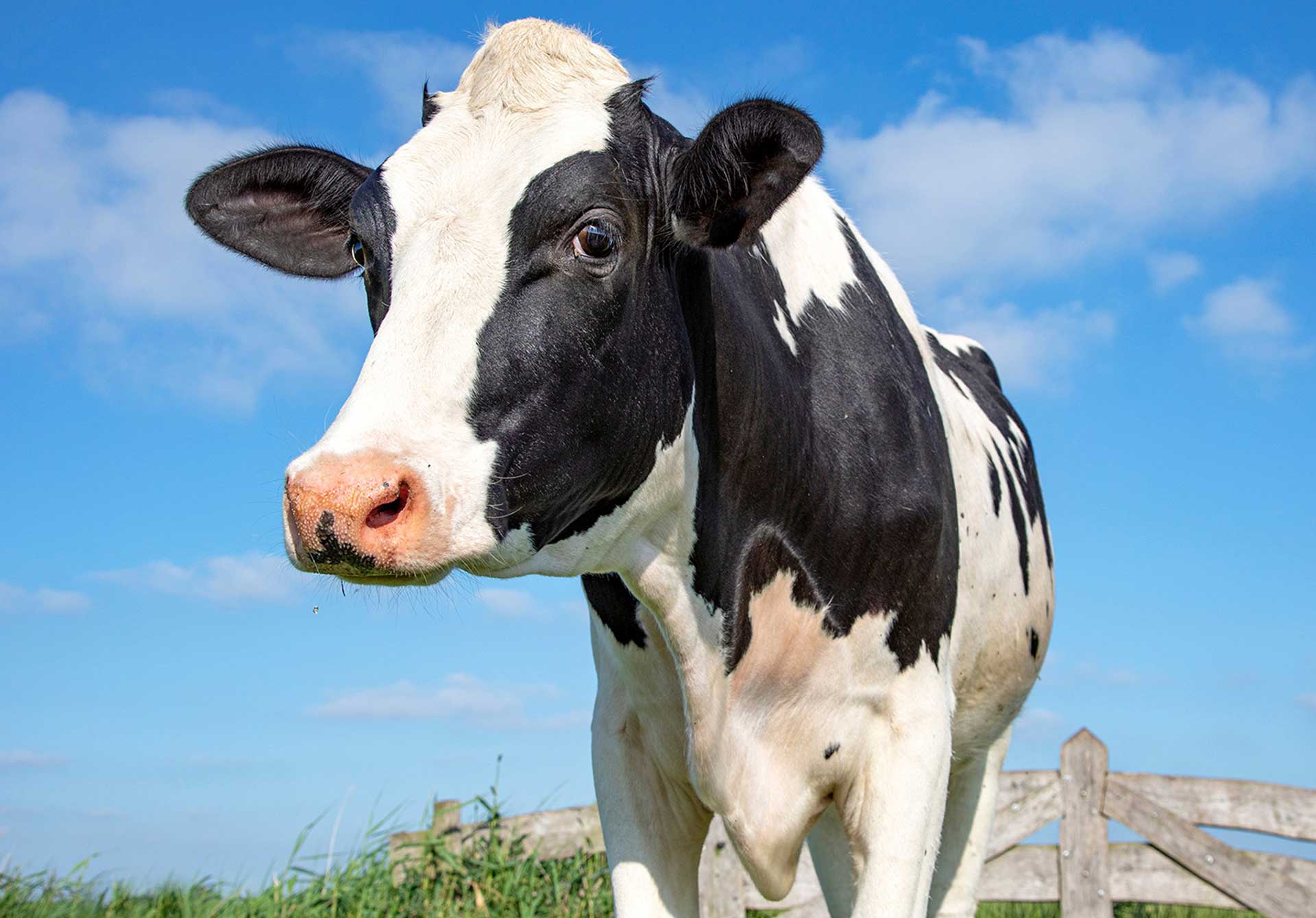As the world strives to realize a sustainable future, the global dairy sector faces a huge challenge: reducing greenhouse gas emissions while meeting growing demand for products that provide an essential source of nutrition across society.
Globally, greenhouse gas (GHG) per kilogram of milk declined nearly 11% from 2005-2015, reflecting continued improvements to on-farm efficiency.1 However there is a distinct difference in emission intensities between regions.
In few places is this challenge more pronounced than China. Currently the world’s third-largest dairy producer, many Chinese dairy farms have high GHG emissions levels compared to dairy farms in more developed regions.2
“The dairy sector in China has been undergoing rapid growth in recent years, driven by a rise in dairy consumption per capita, the urbanization rate, and an increase in disposable income,” says Wallace Lam, Managing Director and Head of Institutional Banking Group DBS Bank (Hong Kong). “While demand is high and the industry’s impact to environment is huge, it is important to act now to ensure green production from source.”
For Chinese dairy farms, the largest emission source is feed production and processing (31.8%), followed by enteric fermentation (30.0%), manure management (20.8%), energy consumption (9.7%), transport (7.7%) and manure application (7.2%).3 Achieving greater efficiency will prove vital not only to greening the industry, but to realizing the global drive to net zero.

A Greener Future
China Mengniu Dairy Company Ltd—one of the ten-largest dairy companies in the world4—has taken the need to reshape the dairy industry to heart.
In its 2021 ESG report, the dairy-maker detailed its “GREEN Sustainable Development Strategy”—a five-pillar roadmap pegged to the United Nations Sustainable Development Goals—and announced its goals of achieving carbon peak by 2030 and carbon neutrality by 2050.5
“We have formulated three topics of dual-carbon actions, green operation and recycling, comprehensively carried out the management of greenhouse gases, water resources and waste, the recycling of packing materials and other actions to minimize the impact on the environment,” says Chris Kwok, Financial Controller, China Mengniu Dairy Company Limited. “Step by step, we aim to innovate low-carbon ranches, practice green production, create green packages and achieve low-carbon transportation, lead Chinese dairy industry towards ‘carbon neutrality’ and contribute to achieve China’s national ‘dual carbon’ goal.”
One pillar of Mengniu’s GREEN strategy dubbed “Environment-Carbon Net-zero," aims to improve its environmental performance to create a cleaner and lower carbon production process and actively respond to climate change.6

“One of the key challenges is to ensure food safety, improve efficiency and reduce emissions along the whole industry value chain for green production from source,” Kwok says. “Mengniu has been investing along the value chain from forage cultivation, raw milk sourcing to manufacturing and distribution for better industry collaborations. This enables energy conservation and emission reduction and support our dual-carbon strategy along the value chain.”
To realize those ambitions, China Mengniu Dairy must continue to invest in its production processes with an eye to innovate. In turn, it required additional funding and a trustable green advisory who truly understands the industry.
“While working with our client Mengniu we understand that there are a few challenges in Dairy industry in China including food safety, efficiency improvement and emission reduction,” Lam adds. “Engaging with upstream dairy partners along the whole industry value chain is critical for green production from source, while assisting each upstream dairy farm player to apply to high ESG standards and gain access to supply chain resources is challenging as the industry is highly fragmented. To help the industry to transition, working with an anchor client – like Mengniu – is very effective to get partners onboard and drive better industry collaboration towards the common ESG goals.”
A Diverse Solution
In 2021, DBS HK and the other two banks arranged China Mengniu Dairy’s first offshore green loan to help the dairy-maker fund its ambitions. To ensure that the loan met industry standards, DBS HK suggested appointing Hong Kong Quality Assurance Agency (HKQAA) as an independent reviewer for verification.
“This is a club deal arranged by DBS and the other two banks,” Lam says. “As one of the co-green advisors, DBS HK played an active role in facilitating the client to prepare for the submission of materials to HKQAA, given our strong understanding of the verification process. The loan demonstrates DBS’s strong connectivity and capability in advising Chinese clients to successfully receive green financing in Hong Kong, paving the way for more offshore green financing opportunities. This transaction also showcased the mutual commitment of Mengniu and DBS to make a positive impact and create value for the long term.”
China Mengniu Dairy will use the proceeds of the HK$2.3 billion7 loan to produce natural organic milk and improve the company’s energy and water saving capabilities.8
“This green loan not only provides financing but also helps banks and external investors have a better understanding of Mengniu’s commitment & latest sustainability development.” Kwok adds.
Click here to find out more about DBS Catalysts of Sustainability
This content is produced in partnership with Bloomberg Media Studios.
Reference:
1. FAO
2. CCFAS
3. CCFAS
4. Dairy Global
8. Finance Asia
